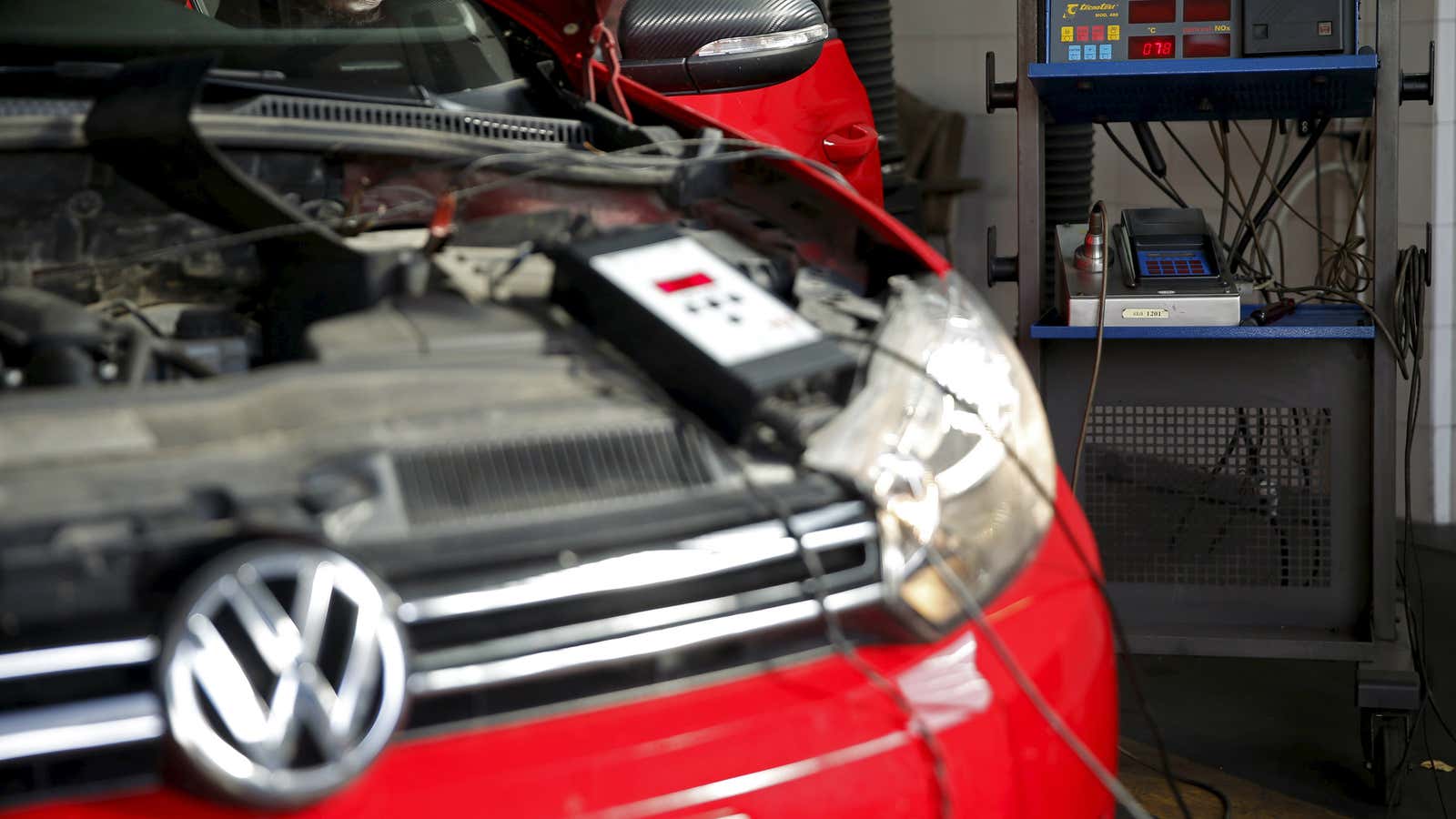When Volkswagen’s emissions-cheating scandal was uncovered in September, the automaker’s chief executive, Martin Winterkorn, quickly resigned. But, as he accepted responsibility while denying wrongdoing, is it truly fair that Winterkorn should shoulder all the blame?
Moral philosophers examined similar situations in their book, Moral Responsibility and the Problem of Many Hands, published earlier this year. And while their theory can help point the finger at who’s to blame in corrupt corporations, it can also help figure out accountability in everyday situations, co-author Ibo van de Poel, professor of ethics and technology at Delft University of Technology in the Netherlands, tells Quartz.
“No individual is responsible for all of climate change but as a group, we are responsible. There’s disconnect there,” he says. “There’s also much more mundane situations. For example, if a football team loses the game, you might say it’s the team’s responsibility rather than individual players’.”
The authors established five factors that help determine responsibility: knowledge, causality, freedom to act, wrongdoing, and capacity (e.g. children or those with serious mental illness wouldn’t be considered fully capable.)
By breaking it down this way, they reveal why the moral problem is so complicated. For one thing, there are different theories as to what each factor means.
“You could say that knowledge is whether people knew that something could go wrong, or could have known that something could go wrong. It’s not the same condition, and there are all shades in between,” says van de Poel. “And with causality, you could say you’re only responsible if you helped cause it, or you’re responsible if you didn’t prevent it. Maybe you didn’t actively cause it, but you had an omission.”
Furthermore, fragmented decision making often means that no one individual has the knowledge, causality, and so on, to assume responsibility, even though the group as a whole is responsible. The authors write in their book:
“Applying the knowledge of each individual in isolation might yield a different result than applying it to the entire group of actors at once. This is why we might sometime judge that none of the individuals could reasonably foresee a certain harm, whereas at the collective level that same harm is foreseeable, which means that the collective satisfies the knowledge condition for responsibility, even if none if the individuals satisfies the condition.”
This means while individual employees may not hold responsibility, as a group they are entirely blameworthy.
Of course, while Winterkorn may not be individually morally responsible for all of Volkwagen’s misdeeds, he can still, as head of the company, be held legally accountable.
Understanding the problem of group responsibility should incentivize companies to have clearer lines of power and communication. Van de Poel also says that assigning responsibility in cases of group wrongdoing can help give justice to the victims and deter individuals from behaving the same way again. And the final reason, he adds, is to determine the rules and expectations we have for all groups in society.
“We might not make the individuals behave better, but we as a community can understand the rules we want to live by,” he says.
